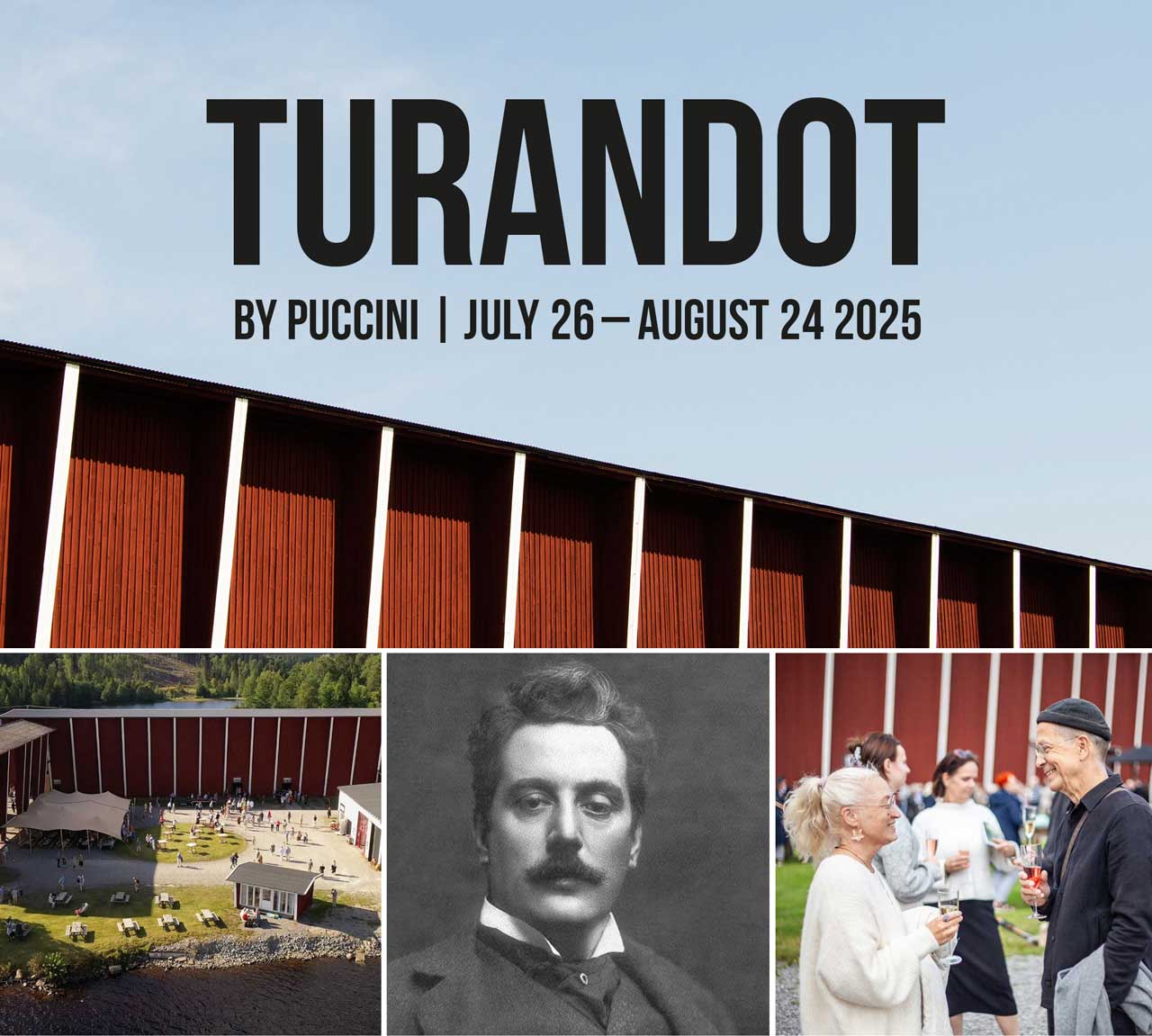
It is still a long way to summer and the production of Turandot, but let us give you a small introduction to this magnificent and grand opera.
The opera Turandot is one of the great classics. The story in Turandot is based on old Asian folktale elements and stories about a real princess who lived at the end of the 13th century and the beginning of the 14th century. It is a gripping tale. The music is wonderfully beautiful and contains demanding soloist parts.
The composer Giacomo Puccini never got to hear his opera performed. When he died 100 years ago, on November 29, 1924, he had not finished Turandot. A few pages remained. It was his student, Franco Alfano, who was tasked with completing the work. When the world premiere took place a year and a half later, the conductor Arturo Toscanini chose to put down his baton in the third act, with the words “Here ends the opera, here the master laid down his pen.” It was only at the second performance that the version completed by Alfano was played.
The story is about Princess Turandot, who, according to convention, must marry. Turandot herself does everything to prevent this. She demands that her potential future husband solve three difficult riddles. If he succeeds, they will marry; if he fails, he will be punished by death. Thirteen suitors take on the challenge, but fail and lose their lives. Eventually, Prince Calaf decides to take up the challenge. Much to Princess Turandot’s dismay, he manages to answer the three riddles correctly. However, Calaf is not satisfied with this. He also wants to win the princess’s love by giving her another opportunity to decide his fate. She will have that opportunity if she can discover his name.
Turandot commands the entire city’s inhabitants to try to figure out the prince’s name. It is here, in the third act, that the famous aria “Nessun Dorma” (“No one shall sleep”) is performed by Prince Calaf. The prince, however, is convinced that everything will end happily and concludes the aria with “Vincerò!” (“I will win!”).
The prince is right in his conviction, and the couple fall in love. But, even though this is an opera with a happy ending, many die along the way.
The underlying message of the opera remains the same as it always has been: It doesn’t matter who you are or where you come from – we are all searching for love.
Experience Turandot this summer at Opera at Skäret!